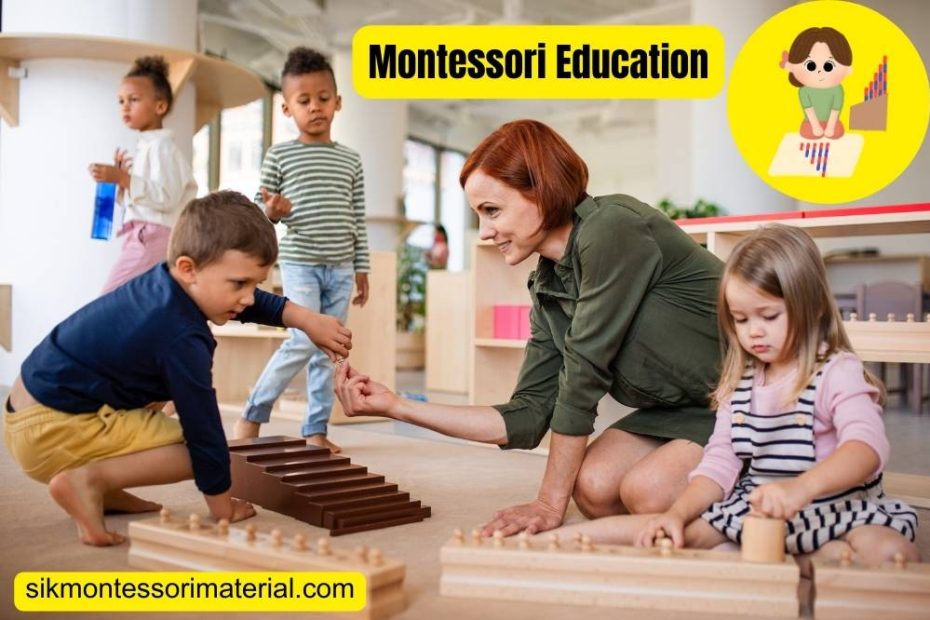In the realm of educational methodologies, the Montessori teaching method stands out as a revolutionary approach that emphasizes personalized learning and holistic development. Founded by Dr. Maria Montessori, this method has gained popularity for its unique philosophy and practices. In this article, we will delve into the intricacies of the Montessori teaching method, its principles, benefits, and differences from traditional education.
Who was the Founder of Montessori Teaching Method?
Dr. Maria Montessori, an Italian physician and educator, was the visionary behind the Montessori teaching method. In the early 20th century, she developed an educational approach that focused on fostering a child’s natural curiosity and independence.
What is Montessori Teaching Method?
At its core, the Montessori teaching method is an educational philosophy that respects the individuality of each child. It encourages self-directed learning, hands-on experiences, and collaborative exploration. In Montessori classrooms, children are regarded as active participants in their education, and the role of the teacher is that of a guide and facilitator.
Main Objective of Montessori Education
The main objective of Montessori education is to nurture well-rounded individuals who possess a strong sense of self, critical thinking skills, and a love for learning. It aims to create independent thinkers who are confident, socially responsible, and capable of adapting to a rapidly changing world.
Principles of Montessori Based Education
Montessori education is built upon several key principles:
- Respect for the Child: The method recognizes each child’s unique abilities, interests, and pace of learning.
- Prepared Environment: Classrooms are carefully designed to provide a rich and stimulating environment that encourages exploration and discovery.
- Self-Directed Learning: Students choose activities based on their interests and learn at their own pace.
- Hands-On Materials: Montessori materials are designed to be interactive and aid in the development of specific skills.
- Mixed-Age Groups: Classrooms often include a mix of ages, promoting peer learning and collaboration.
How Montessori Education is Different from Traditional Education
Montessori education differs from traditional methods in several ways:
- Student-Centric vs. Teacher-Centric: Montessori focuses on the student’s needs and interests, whereas traditional education is often teacher-centered.
- Individualized Learning vs. Uniform Curriculum: Montessori tailors learning to each child, while traditional education typically follows a standardized curriculum.
- Active vs. Passive Learning: Montessori promotes active learning through hands-on experiences, while traditional education may involve passive listening.
- Holistic Development vs. Academic Focus: Montessori emphasizes overall development, including social, emotional, and cognitive aspects, whereas traditional education often prioritizes academic achievements.
Curriculum for Montessori Teaching Method
The Montessori curriculum is designed to cater to a child’s developmental stages. It encompasses practical life skills, sensorial experiences, language development, mathematics, cultural studies, and the arts. This diverse curriculum ensures that children receive a comprehensive and well-rounded education.
What are Montessori Materials?
Montessori materials are carefully crafted learning tools that facilitate hands-on learning and understanding of abstract concepts. These materials are designed to be self-correcting, allowing students to identify and learn from their mistakes independently.
Role of Teachers in Montessori Education
In the Montessori method, teachers take on the role of observers and guides. They carefully observe each child’s progress, provide individualized guidance, and create a supportive learning environment. Teachers encourage curiosity, independence, and critical thinking.
Role of Learners in Montessori Education
Learners in Montessori education actively engage with the environment, making choices based on their interests. They develop a sense of responsibility for their learning and are encouraged to explore and collaborate with peers.
Alternatives to Montessori Education System
While Montessori education has gained widespread recognition, there are alternative approaches to consider, such as Waldorf education, Reggio Emilia, and homeschooling. Each approach offers its unique philosophy and methods.
Why Montessori Education is Popular
Montessori education’s popularity stems from its success in fostering independent thinkers, its emphasis on practical life skills, and its focus on holistic development. Parents and educators are drawn to its child-centered approach and the positive impact it has on a child’s lifelong learning journey.
Is Montessori Education Expensive?
The cost of Montessori education varies depending on factors such as location, facilities, and resources. While it may be perceived as more expensive than traditional schooling, many parents believe the benefits it offers in terms of individualized learning and character development are well worth the investment.
Conclusion
In a world where education plays a pivotal role in shaping future generations, the Montessori teaching method offers a refreshing perspective. Dr. Maria Montessori’s innovative approach to education celebrates the uniqueness of each child, promotes self-discovery, and prepares them to become well-rounded individuals capable of thriving in an ever-evolving society.
FAQs About Montessori Teaching Method
What age group is Montessori education suitable for?
Montessori education is typically suitable for children between the ages of 3 to 12 years old.
Are Montessori schools only for gifted children?
No, Montessori education benefits children of all abilities and backgrounds.
Can Montessori-educated children transition easily to traditional schools?
Yes, Montessori-educated children often demonstrate strong adaptability and social skills.
Is there a specific certification for Montessori teachers?
Yes, Montessori teachers usually undergo specialized training and certification.
Do Montessori schools provide extracurricular activities?
Many Montessori schools offer extracurricular activities to complement the core curriculum.
